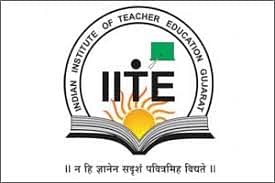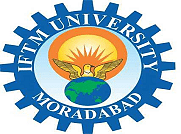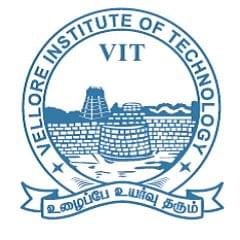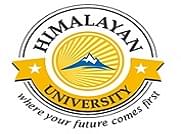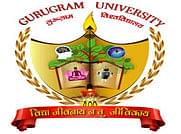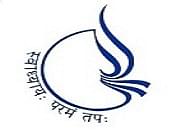Introduction about Ph. D Yoga and naturopathy
Ph.D. in Yoga and Naturopathy at top college is an advanced academic program designed
for individuals who are deeply interested in the holistic practices of yoga and
naturopathy and wish to pursue rigorous research and scholarship in this field.
This specialized doctoral program typically involves in-depth study of the
principles, theories, practices, and therapeutic applications of yoga and
naturopathy, along with advanced research methodologies.
Here's a structured
introduction:
1. Understanding
Yoga and Naturopathy:
Yoga is an ancient
Indian practice that encompasses physical postures, breath control, meditation,
and ethical principles aimed at achieving holistic well-being.
Naturopathy is a
system of alternative medicine that emphasizes the body's innate ability to
heal itself through natural therapies, lifestyle modifications, and dietary
adjustments.
2. Scope of Ph.D.
Studies:
A Ph.D. in Yoga and
Naturopathy delves deep into the philosophical, historical, and scientific
foundations of these practices.
It explores various
yoga techniques, such as Hatha, Ashtanga, Kundalini, and their therapeutic
applications for physical, mental, and spiritual health.
Naturopathic
principles, including herbal medicine, hydrotherapy, nutrition, and
detoxification, are examined for their efficacy and safety in promoting
wellness.
3. Research Focus
Areas:
Research in this
field may focus on evaluating the physiological, psychological, and
neurological effects of yoga and naturopathic interventions.
Investigations into
the effectiveness of yoga and naturopathy in managing chronic conditions like
hypertension, diabetes, anxiety disorders, and chronic pain are common.
Studies may also
explore the integration of these practices into mainstream healthcare systems
and their role in preventive medicine and public health.
4. Methodological
Approaches:
Ph.D. candidates
typically engage in qualitative and quantitative research methodologies,
including clinical trials, surveys, case studies, and qualitative interviews.
Interdisciplinary
approaches combining aspects of psychology, physiology, neuroscience,
anthropology, and philosophy are often employed to deepen understanding and
enhance the applicability of research findings.
5. Career
Opportunities:
Graduates of a
Ph.D. program in Yoga and Naturopathy may pursue academic careers as
researchers and educators in universities, colleges, and research institutes.
They may also find
employment in healthcare settings, wellness centers, spas, corporate wellness
programs, and community health organizations.
Some individuals
may choose to establish their own private practices or consultancy services
specializing in yoga therapy or naturopathic medicine.
What is admission process of Ph. D Yoga and
naturopathy ?
The admission process 2024 for Ph.D. in Yoga and Naturopathy can vary depending on the
institution offering the program and the specific requirements they have.
However, here is a general overview of what the admission process might entail:
1. Eligibility
Criteria:
Candidates must
typically hold a master's degree in a relevant field, such as Yoga,
Naturopathy, Ayurveda, Alternative Medicine, Psychology, Physiology, or a
related discipline.
Some institutions
may also require candidates to have a minimum percentage or grade point average
in their master's degree program.
2. Entrance Exam:
Many universities
and institutions require candidates to appear for an entrance examination as
part of the admission process.
The entrance exam
may test the candidate's knowledge of the subject matter, research aptitude,
and general aptitude in areas such as reasoning and quantitative analysis.
Some institutions
may also require candidates to qualify in a specific national-level entrance
exam, such as the UGC-NET (National Eligibility Test) or CSIR-NET (Council of
Scientific and Industrial Research - National Eligibility Test).
3. Research
Proposal:
Candidates are
often required to submit a research proposal outlining their intended area of
research, research questions, objectives, methodology, and potential
contributions to the field.
The research
proposal helps the admission committee assess the candidate's research
aptitude, clarity of thought, and alignment of research interests with the
faculty's expertise.
4. Interview:
Shortlisted
candidates may be called for an interview as part of the selection process.
The interview panel
may consist of faculty members from the department or program offering the
Ph.D., who evaluate the candidate's academic background, research interests,
motivation, and suitability for doctoral studies.
5. Academic Records
and References:
Candidates are
typically required to submit their academic transcripts, certificates, and
other relevant documents as part of the application process.
Letters of
recommendation from academic or professional references may also be required to
assess the candidate's potential for doctoral research.
6. English
Proficiency:
For international
students or candidates from non-English speaking countries, proficiency in
English may be required. This is often demonstrated through standardized tests
such as the TOEFL (Test of English as a Foreign Language) or IELTS
(International English Language Testing System).
7. Application
Submission:
Candidates need to
complete and submit the application form along with all required documents
within the specified deadline.
It's essential for
prospective applicants to thoroughly review the admission guidelines and
requirements specified by the institution offering the Ph.D. program in Yoga
and Naturopathy and ensure that they meet all eligibility criteria and submit
all necessary documents accurately and on time.
What is eligibility for Ph.D Yoga and naturopathy ?
The eligibility criteria for Ph.D. in Yoga and Naturopathy
can vary depending on the institution offering the program. However,
here are some typical eligibility requirements:
Educational
Qualifications:
Candidates must
generally hold a master's degree in a relevant field such as Yoga, Naturopathy,
Ayurveda, Alternative Medicine, Psychology, Physiology, or a related discipline
from a recognized university or institution.
Some institutions
may specify a minimum percentage or grade point average in the master's degree
program as part of the eligibility criteria.
Entrance Exam:
Many universities
and institutions require candidates to qualify in an entrance examination as
part of the admission process for the Ph.D. program.
The entrance exam
may test the candidate's knowledge in the subject area, research aptitude, and
general aptitude in areas such as reasoning and quantitative analysis.
Some institutions
may also require candidates to qualify in a specific national-level entrance
exam, such as the UGC-NET (National Eligibility Test) or CSIR-NET (Council of
Scientific and Industrial Research - National Eligibility Test).
Research Proposal:
Candidates may be
required to submit a research proposal outlining their proposed area of
research, research questions, objectives, methodology, and potential
contributions to the field.
The research
proposal helps the admission committee assess the candidate's research
aptitude, clarity of thought, and alignment of research interests with the
faculty's expertise.
Interview:
Shortlisted
candidates may be called for an interview as part of the selection process.
The interview panel
typically consists of faculty members from the department or program offering
the Ph.D., who evaluate the candidate's academic background, research
interests, motivation, and suitability for doctoral studies.
English Proficiency (for International Students):
International
students or candidates from non-English speaking countries may be required to
demonstrate proficiency in English.
This is often done
through standardized tests such as the TOEFL (Test of English as a Foreign
Language) or IELTS (International English Language Testing System).
It's important for
prospective applicants to carefully review the eligibility criteria specified
by the institution offering the Ph.D. program in Yoga and Naturopathy and
ensure that they meet all requirements before applying. Additionally, specific
eligibility criteria may vary between different institutions, so it's advisable
to check the detailed admission guidelines provided by each institution.
What is syllabus of Ph. D Yoga and naturopathy ?
The syllabus for Ph.D. in Yoga and Naturopathy 2024 can
vary significantly depending on the institution offering the program, the
faculty expertise, and the research focus areas. However, I can provide a
generalized overview of potential topics that may be covered in such a program:
Foundation Courses:
History and
Philosophy of Yoga
Principles and
Practices of Naturopathy
Anatomy and
Physiology
Psychology of
Health and Wellness
Advanced Topics in
Yoga:
Classical Yoga
Texts (e.g., Yoga Sutras of Patanjali, Hatha Yoga Pradipika)
Advanced Yoga
Asanas and Pranayama Techniques
Yoga Therapy for
Various Health Conditions (e.g., musculoskeletal disorders, cardiovascular
health, mental health disorders)
Therapeutic
Applications of Yoga (e.g., stress management, pain management, rehabilitation)
Advanced Topics in
Naturopathy:
Naturopathic
Principles and Philosophies
Herbal Medicine and
Plant-Based Therapies
Hydrotherapy and
Balneotherapy
Nutritional
Medicine and Dietary Approaches
Detoxification
Techniques
Research
Methodology and Tools:
Research Design and
Methodology
Quantitative and
Qualitative Research Methods
Statistical
Analysis for Health Sciences
Literature Review
and Critical Analysis
Research Ethics and
Integrity
Interdisciplinary
Approaches:
Integrative
Medicine: Combining Yoga, Naturopathy, and Conventional Medicine
Psychophysiological
Effects of Yoga and Naturopathic Interventions
Neuroscience of
Meditation and Mindfulness
Cultural and
Societal Perspectives on Yoga and Naturopathy
Elective Courses:
Advanced Yoga
Philosophy
Ayurveda and its
Relationship with Yoga
Energy Medicine and
Traditional Healing Practices
Yoga and
Naturopathy for Special Populations (e.g., children, elderly, pregnant women)
Dissertation
Research:
Proposal
Development
Literature Review
Data Collection and
Analysis
Writing and Defence
of Dissertation
This syllabus is
indicative and may be adapted or expanded based on the specific research
interests of faculty members, the focus areas of the program, and emerging
trends in the field of Yoga and Naturopathy. Additionally, individual
institutions may offer variations in their Ph.D. programs, so prospective
students should review the detailed syllabus provided by the institution of
interest .





